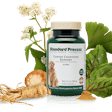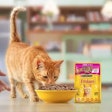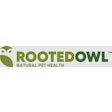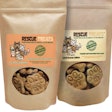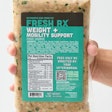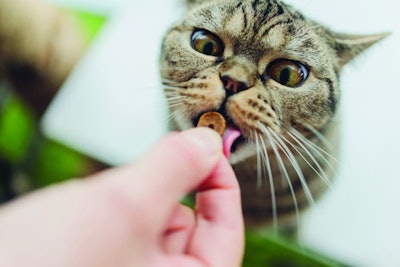
With the humanization of pets, pet owners are increasingly looking for ways to improve their pet’s health as they do for themselves. These pet owners are turning more towards probiotics to help improve overall health, or specifically targeted health concerns such as digestive health, immune health, skin health and more.
On May 2, 2023, during Petfood Forum (held annually in Kansas City, Missouri, USA), Lidiia Alaverdova, head of global marketing for the ANH and global pet portfolio for Chr. Hansen, shared independent research on millennial pet owners’ perceptions of probiotics for their pets in the U.S. and China.
From the study it was found that 27% of pet owners are turning to probiotics, with a majority being millennials. These younger pet owners tend to be more invested in their pet's health, spending more money on food and the wellbeing of their pets, and visiting their veterinarian regularly.
“Beyond the overall health, there are a lot of other benefits that are associated with probiotics,” said Alaverdova.
Of these other benefits, the top three motivators for pet owners to give probiotics to their pets are digestive health (61%), immune health (59%) and healthy aging (58%). Some other motivators include urinary health (53%), skin health (52%), oral/dental health (50%), stress and anxiety (47%), allergies (45%), healthy development (45%) and weight control (44%).
“We also asked them to rank different ingredients in terms of their association with overall health and well-being of pets,” said Alaverdova. “All we had done was put a list of ingredients in front of them and people were to choose which ones they associate more with being better connected to the overall health and well-being.”
Both users and non-users of probiotics had probiotics within the top five ingredients of their rankings. For the users, or individuals who had purchased a probiotic in the past 12 months, it was ranked in the top spot with 78%. For the non-users, it was the fourth ingredient of interest with 26%.
Proactive health
Most pet owners were proactive in finding the right probiotic product for their pet.
“Was it a coincidence that pet owners found a product with probiotics?” said Alaverdova. “Apparently not, 86% of them said they had actively set out to look for a probiotic or a pet food containing probiotics.”
Veterinarian recommendation remains a key part of pet owners’ decision for probiotics to solve a specific issue and for well-being, but some pet owners will do their own research online. As for well-being, some pet owners were willing to try recommendations from friends.
Type of probiotics pet owners are using, length of use
The study found that pet owners used an average of 2.1 probiotic products. Of product types, pet food containing probiotics is purchased most often, but 91% of users supplement with another probiotic product.
Treats/snacks with probiotics accounted for 58%, probiotic supplements as a topper accounted for 44% and probiotic daily supplements given directly to the pet accounted for 41%.
As for length of use, most pet owners use probiotics for one to two years (58%). While 26% use them for a year or less and 16% for three or more years.
Pet foods containing a probiotic had the best frequency of use. Supplements given as a topper or by mouth to pets were either given every day or “from time to time.”










